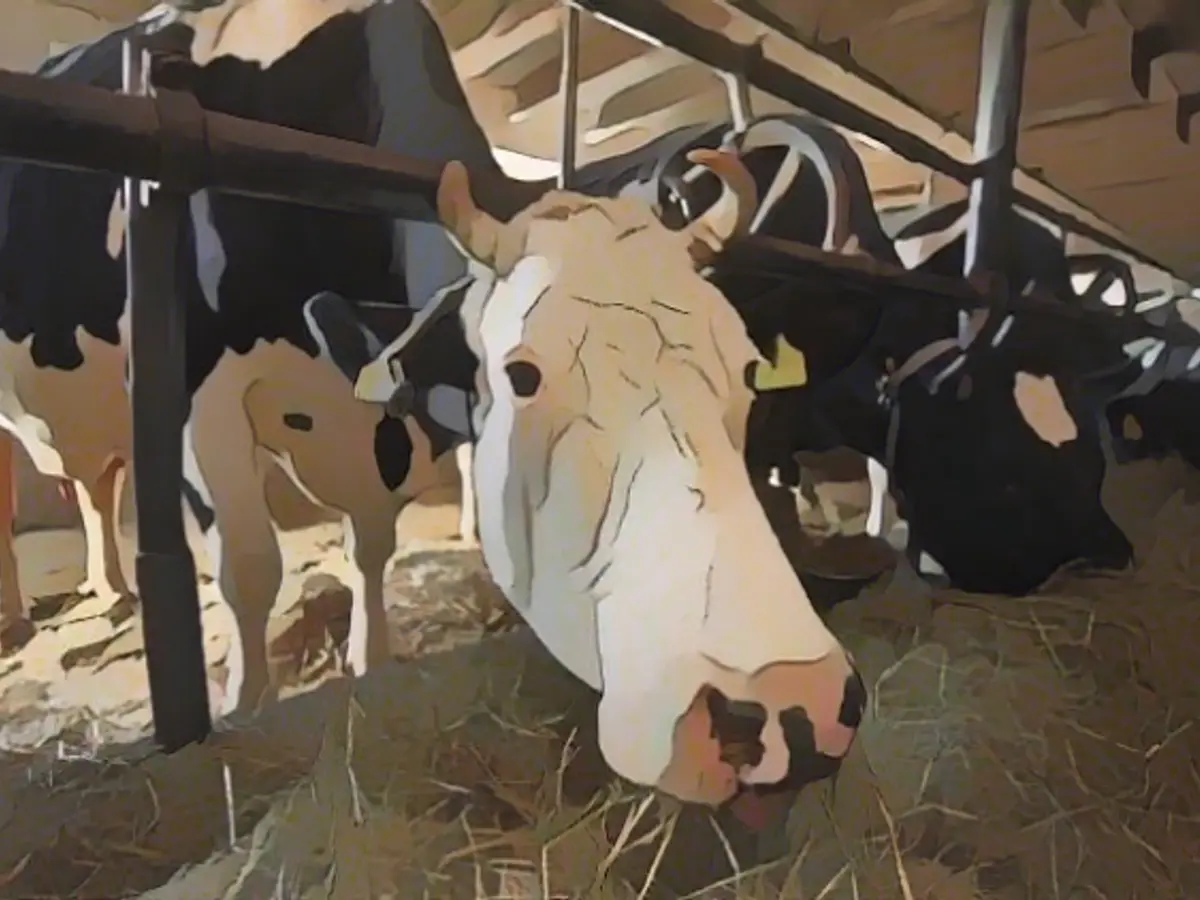Tackling Tethering: Foodwatch Speaks Out Against Cow and Bull Confinement
In an effort to paint a rosy picture, the food industry often portrays itself as a champion of animal welfare. Unfortunately, this isn't always the case. Witness the situation in numerous German stables where bulls and dairy cows are tethered in cramped spaces, barely able to move. The consumer organization Foodwatch is determined to push for better livestock management rules.
Foodwatch urges the coalition government to uphold its promise, made in the coalition agreement, and outlaw tethering for cattle. Around one million dairy cows and bulls suffer from this confinement in German stables, according to Foodwatch. One in three farms within Germany keeps their cattle tethered, while the figure is one in two in Bavaria, as reported by the farmers' association.
"Despite the food industry's attempt to create a positive image, the reality for thousands of bovines in Germany is far from pastoral serenity, instead they live a life shackled," commented Annemarie Botzki from Foodwatch. "Our dairy products, like cheese, yogurt, or milk, often mean cattle endure an agonizing existence, suffering in cramped, stationary stalls." Tethering contradicts animal welfare principles.
The 2021 coalition agreement of the SPD, Greens, and FDP purported to eradicate tethering within a decade. However, a draft bill from the Federal Ministry of Agriculture appears to have hit a snag when it came to the cabinet vote. As a result, Foodwatch launched an email protest campaign on its website to the government.
In Foodwatch's opinion, any compromise, such as so-called combined husbandry, is still unacceptable. This method allows for animal movement on 120 days of the year, while they remain stationary for the majority of it. According to Foodwatch, this continues to breach the Animal Welfare Act.
As of May 3, 2023, there were approximately 10.9 million cows in Germany, Foodwatch data reveals. Cattle naturally roam and traverse several kilometers on a daily basis in pastures as part of a social herd. Veterinary studies have highlighted that dairy cows kept indoors are particularly prone to painful udder infections.
Additional Insights:
- Strict animal welfare laws are in place in Germany, although specific tethering regulations for cattle in stables are not mentioned in the sources. In general, Germany's animal welfare laws aim to prevent animal cruelty and safeguard their well-being.
- Organizations like Foodwatch play a crucial role in advocating for better treatment of animals in agricultural settings. These organizations often launch campaigns and lobby to push for improved animal welfare standards.
- The global movement against animal cruelty, including tethering, is on the rise, with organizations like the European Animal Welfare Platform and local animal welfare groups collaborating to raise awareness and push for policy changes.
- Public campaigns and protests, such as those spearheaded by those involved in the "Fridays for Future" movement, demonstrates the public's growing concern for animal welfare and environmental issues, further applying pressure on institutions to evolve their policies.
For the most current and detailed information on the laws and actions pertaining to the tethering of cattle in German stables, it is essential to consult more specialized sources or official government documents on animal welfare regulations.






